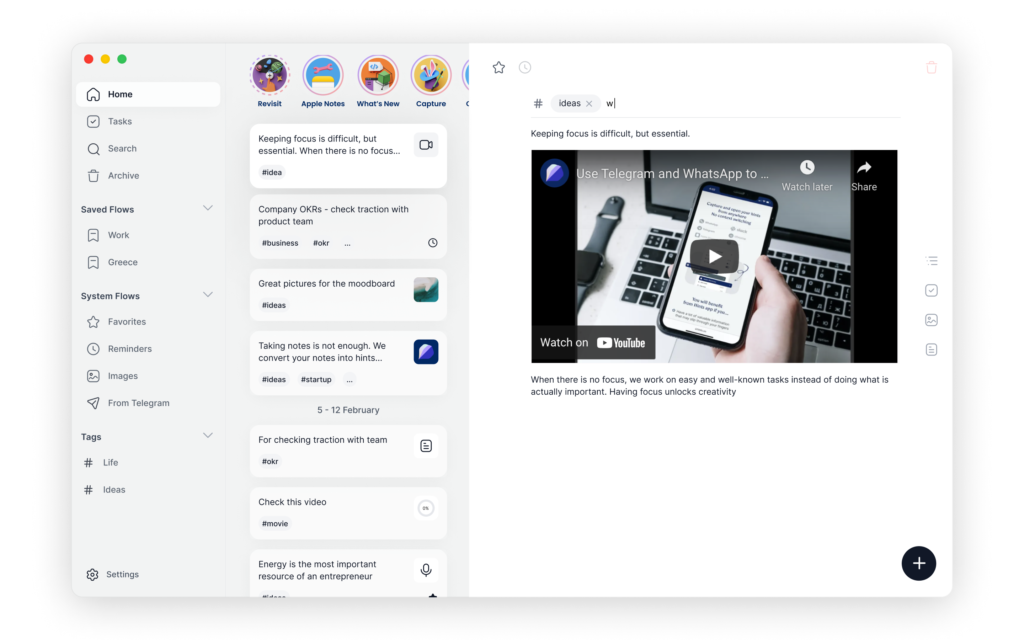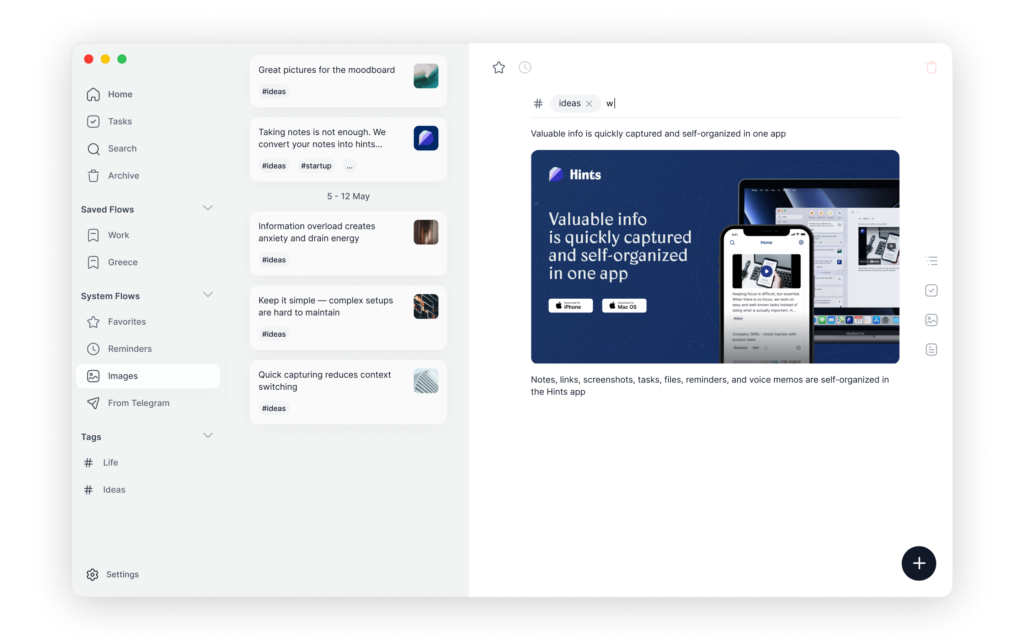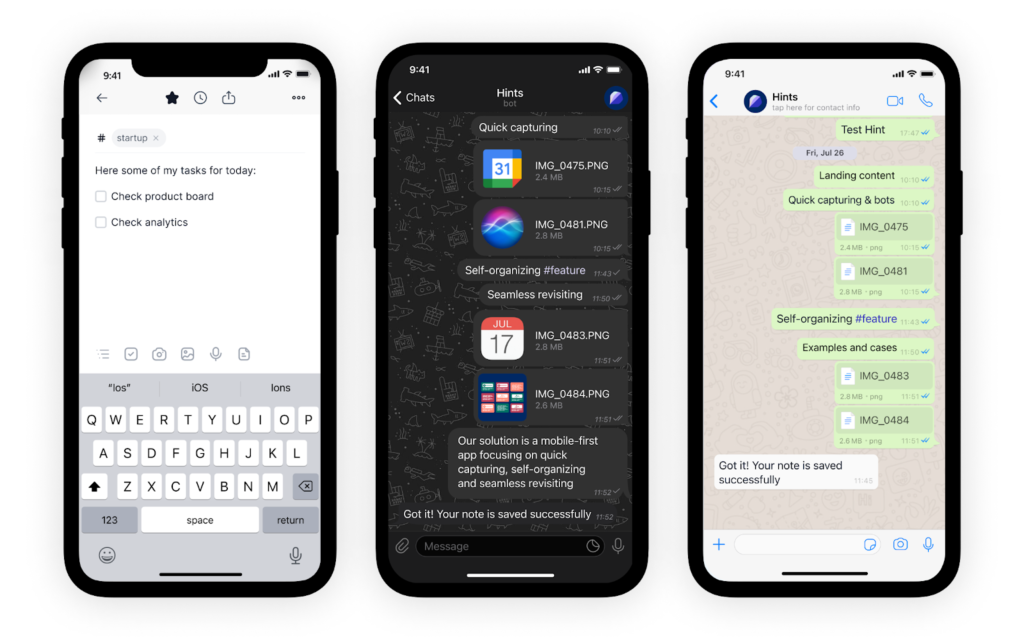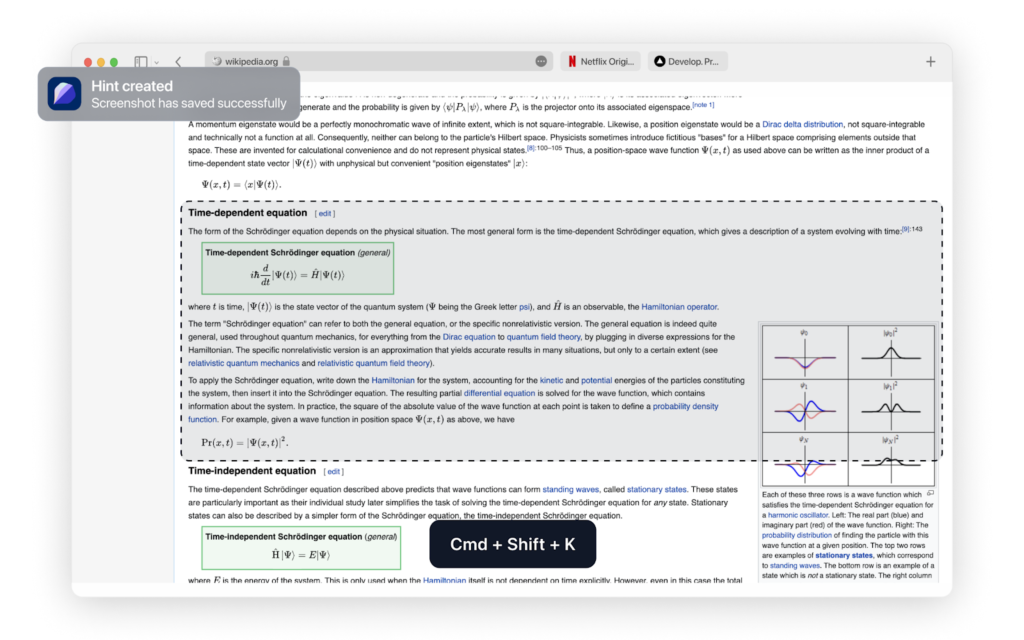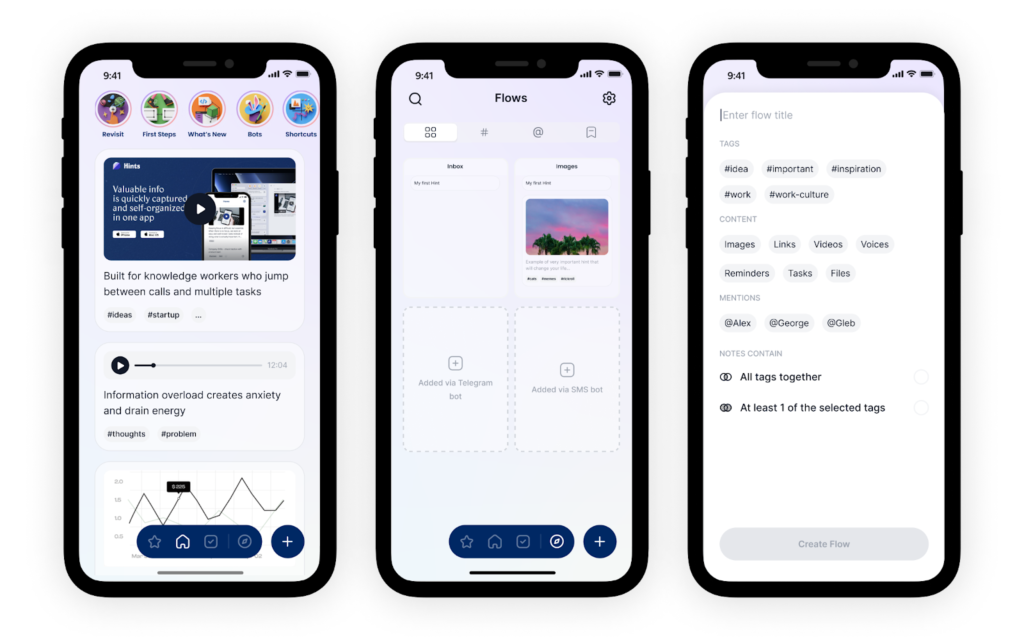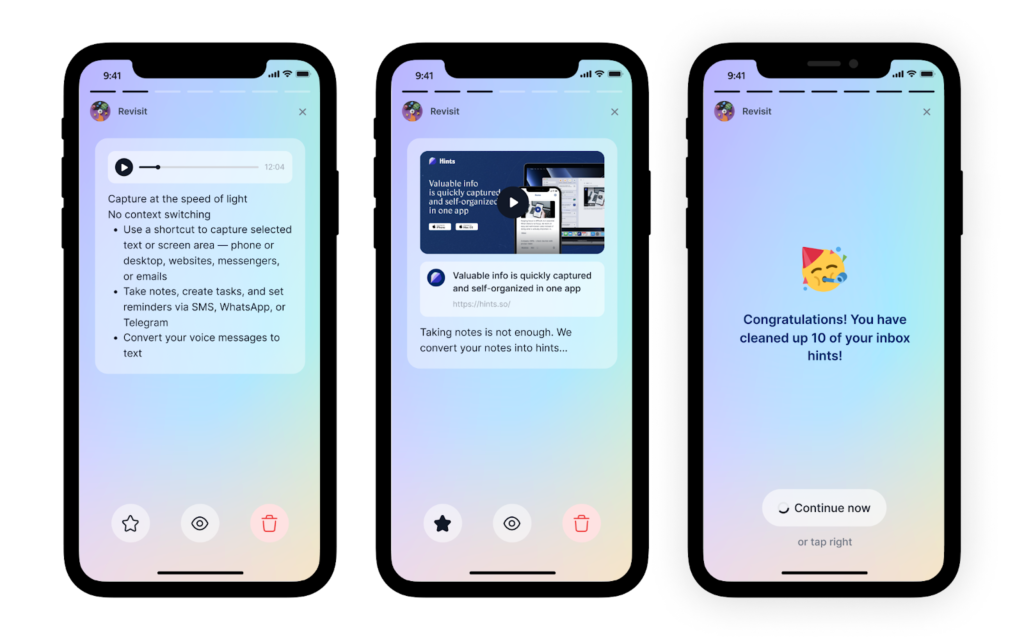Welcome to this edition of our Tools for Thought series, where we interview founders on a mission to help us think better, learn faster, and make the most of our mind. George Levin is the CEO and Co-Founder of Hints, an all-in-one knowledge management app to get information captured and self-organized.
In this interview, we talked about the biggest challenges faced by knowledge workers, why complex systems tend to fail, the importance of revisiting your knowledge to consolidate it, the power of self-organizing your notes, and more. Enjoy the read!
Hi George, thank you so much for agreeing to this interview. What do you think are some of the biggest challenges faced by knowledge workers?
I believe that knowledge is an opportunity. Every piece of information — a note, an article, a link, a screenshot, or a shower thought — is the beginning of something new, a hint that can spark changes in our lives and make us better. Unfortunately, we often miss out on these opportunities. A lot of valuable information is slipping through our fingers.
Before launching Hints, we have conducted over a hundred in-depth interviews to understand how people work with new information and what obstacles they face. We identified three stages: capturing, organizing, and revisiting. Each stage has its own challenges.
Let’s start with capturing. You have probably heard the saying: “If you didn’t write it down, it never happened.” The biggest challenges here are multitasking and change of context. It’s hard to pause your work, especially if you’re jumping between tasks and calls, to save important info.
Then comes organizing. Our notes, screenshots, links, and tasks are often scattered across multiple apps and devices. With a significant effort we can set up complex knowledge management systems, but most solutions require a lot of discipline to maintain. When we run out of time or energy, such complex systems fail.
Finally, we get to the revisiting part. Capturing and organizing are useless without revisiting. Without it, things don’t move forward. Articles you save are not read, TedTalk videos aren’t watched, and new ideas are not developed.
This will definitely resonate with readers. When did you decide to tackle those challenges?
In December 2019, I sold my advertising technology startup Getintent, where I worked with Alex and Gleb. Then in 2020, I built a video distribution platform for vloggers. Unfortunately, it didn’t work out. I decided to slow down and take some time for myself.
During my eight years of entrepreneurship, I’ve noticed the importance of serendipity. A sudden conversation in a coffee shop or a “random” book recommendation could change my life for the better. I learned to keep my eyes and ears open to catch small hints.
This approach brought me to the knowledge management and note-taking community. I decided to build something in this field, but I didn’t want to create a better Roam or Notion. I tried to find some unique problem that wasn’t solved yet. I invited Alex and Gleb, and very soon we found it.
As members of a network of business communities, we talked on FB, WhatsApp, or Slack groups, sharing experiences and giving each other recommendations. This valuable knowledge from conversations stayed on the surface for a few days, only to soon be lost. We built a script that scrapped discussions in these groups and created a self-organizing community wiki on the fly.
Then I remembered a story from one of my early investors about how he built a search engine for financial information and happily sold it to a bank, only to later find out that a company named Google did the same but for the whole web.
I realized that the problem we solved was relevant beyond our niche communities and applied to all knowledge workers who are dealing with a lot of valuable information around them. So in August 2021, we decided to build Hints.
And how does Hints address those challenges faced by knowledge workers?
The Hints app offers users the easiest way to capture, organize, revisit and share new knowledge on the fly. We are mobile-first, but we have desktop and web apps as well.
The main goal of our quick and intuitive capturing is to avoid context switching. If you see something important, you can save it without opening the app in less than a second and stay in your flow. Then all your new knowledge gets auto-organized.
Finally, the revisiting stage is where static notes become active hints. Your hints will be shown to you in an interactive story format. Our recommendation engine resurfaces the most valuable hints and reminds you about them.
Information can come into many formats. What kind of formats does Hints support?
Notes, screenshots, photos, images, tasks, voice-to-text memos, reminders, videos, files, lists, calendar events, links. Every piece of information can be a hint, an opportunity that could change your life.
That kind of flexibility sounds incredibly powerful. More specifically, how does Hints work?
You can capture notes, URLs, YouTube videos, and screenshots on your phone by forwarding them to the Hints app. Also, we support SMS, WhatsApp, and Telegram bots. You can send a text, convert it into tasks and set a reminder via our bots while in the messenger.
The most developed is our Telegram bot. It will allow you to create a calendar invite and add your co-workers. Other bots will catch up soon. You can also capture anything directly from the app or via our Apple Shortcuts widget.
On the desktop, you can capture a selected text from websites, emails, and messages by pressing Command+Shift+J. Or Command+Shift+K for screenshots.
Auto-organizing will group your captured hints by common categories such as meeting notes, people, articles, videos, etc. We call these categories flows because you can decide what flow you want to open depending on your mood and needs.
Revisiting looks like Instagram stories. You can open your revisiting when you don’t have energy and want to browse something. While browsing you can make a change, archive an old hint, add a reminder, or a tag.
This format is very engaging and interactive. I started to use it instead of Instagram and Twitter when I wanted to zone out. You will be surprised how many good hints you captured two months ago and completely forgot about them.
I love the concept of swipeable stories to refresh our knowledge. In general, Hints seems to be a great tool to reduce friction in knowledge management.
Absolutely. First of all, with Hints, you stay in your flow and don’t need to jump between apps to write something down. That’s already a significant relief. Then, you don’t need to think about folders and where to place your hints. It’s self-organized, and you know where to find everything. Finally, you don’t need to think about remembering what you saved. You will be reminded about it. Things you capture will be moved forward to change your life for the better.
Amazing. What kind of people use Hints?
They are professionals who have a lot of work and valuable information that they don’t want to miss. In my case, the Hints app has already changed my life. Nothing falls through the cracks. I stay on top of my things without relying on my discipline. I can go to bed without thinking about what opportunity I could miss today.
And finally… What’s next for Hints?
Our next big step is collaboration and B2B. We want to stay free for individuals and rely on B2B pricing when startups and SMBs start using Hints. For them, Hints can be where all new knowledge is captured and distilled before it moves to in-depth project management tools. Without Hints, businesses miss out on the potential opportunities within new ideas and insights that team members encounter every day.
Thank you so much for your time! Where can people learn more about Hints and give it a try?
You can sign up on our website and follow our journey on Twitter.

